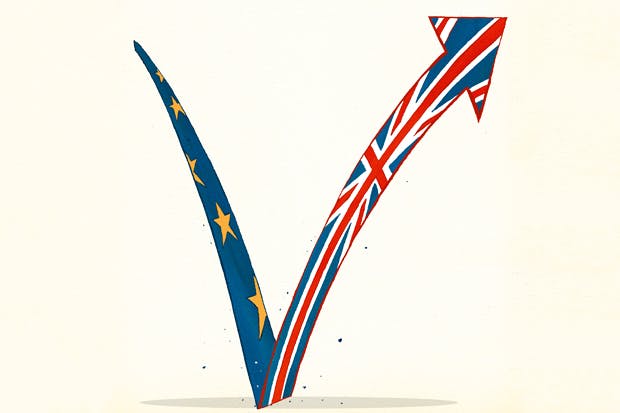Britain is, of course, in a Brexit-driven recession of its own making, while other EU countries are powering on ahead without us. Or so we keep being told. The ideas is that we are distancing ourselves from European markets – and concerned manufacturers will move production to factories elsewhere in the EU.
While this gloomy analysis appears to be confirmed every time the CBI, IMF and others publish their forecasts, it is becoming increasingly hard to square with the economic data.
This morning, IHS/Markit published its monthly Purchasing Managers’ Index (PMI) for manufacturing – a measure of business activity which leads official government statistics on the economy. The survey takes data on economic activity directly from businesses and boils it down to a single score between 0 and 100, where anything over 50 denotes economic expansion and anything under 50 denotes contraction. The PMI for UK manufacturing in December rose to 54.2, up from 53.6 in November, beating the forecasts of most economic commentators. Meanwhile, the PMI for Eurozone manufacturing fell to 51.4 in December, from 51.8 in November. The survey indicated contraction in French (49.7) and Italian (49.2) manufacturing. The index for Germany stood at 51.5. Only Ireland (54.5) and the Netherlands (57.2) can claim faster-expanding manufacturing sectors than the UK.
Some of the unexpectedly good performance in the UK, suggests IHS Markit, is down to businesses stockpiling parts ahead of what they fear might be a messy Brexit. Maybe, but if they are stockpiling parts it does rather indicate that they are committed to continuing with manufacturing in the UK – if they were fleeing to the Eurozone, that would be showing up in the statistics. Stockpiling of parts is certainly not the whole of the story – manufacturing exports are up, too. And while some will inevitably scoff that our factories are only performing well thanks to the fall in the pound since 2016, that is the whole point of having a floating currency. The reason why the Italian economy, for example, is in the permafrost is because it is shackled by the euro, whose exchange rate is disproportionately influenced by economic conditions in Germany and which, as a result, cannot fall so as to make Italian products more competitive.
Actually, Britain’s industrial revival pre-dates the 2016 fall in the pound. With the exception of a small dip in the early months of 2016, UK manufacturing has now been expanding since 2013 – a run of success which has been unprecedented in the past 30 years. For years, manufacturing had been draining away to Asia and our economy was becoming ever-more dominated by services. In Britain, that trend now seems to have been arrested. That is good news for the UK as a whole but for the manufacturing regions in particular. Unfortunately, thanks to the rearguard Remain campaign and its need to talk down the UK economy, we can’t seem to see it as such.







Comments